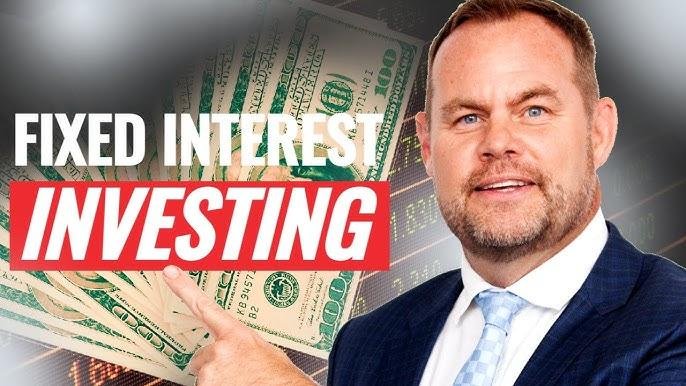Invest Smarter with Money and Investing | Australia’s Financial Education Hub
In today's rapidly evolving financial landscape, the key to achieving long-term wealth and security is smart investing. Whether you're a beginner looking to understand the basics or a seasoned investor aiming to refine your strategy, Money and Investing is Australia’s go-to platform for practical, accessible, and expert-led financial education.
Why Financial Education Matters More Than Ever
Australians are taking greater control of their financial futures—through superannuation, property, shares, ETFs, and cryptocurrencies. But without the right guidance, many fall into traps of misinformation or high-risk decisions.
Financial literacy isn't just a nice-to-have; it’s a must-have. At Money and Investing, we empower individuals with the knowledge they need to:
Make informed investment decisions
Navigate market volatility
Build a diversified portfolio
Understand taxes, super, and wealth-building strategies
What Makes Money and Investing Australia’s Premier Financial Hub?
At Money and Investing, we combine industry expertise with user-friendly resources to help you invest smarter, not harder. Here’s what sets us apart:
1. Expert-Led Content
Led by financial market professionals, our content includes:
Actionable investing strategies
Weekly market updates
Deep dives into trending assets and sectors
Step-by-step guides for beginners
2. Educational Tools & Courses
From introductory investing lessons to advanced trading techniques, our platform offers:
On-demand video courses
Interactive webinars
Downloadable tools and calculators
3. The Money and Investing Podcast
Tune into our top-rated Money and Investing Podcast, where our experts break down complex financial topics into digestible insights. Discover trends, market forecasts, and interviews with seasoned investors and economists.
4. Real-Time Market Analysis
Stay ahead with:
ASX stock analysis
Cryptocurrency updates
Global macroeconomic insights
Property market commentary
5. Community & Support
Join a growing community of Australians who are taking their financial education seriously. Share knowledge, ask questions, and grow together.
Who Is This Platform For?
Our content is tailored for:
Beginners looking to start investing with confidence
Young professionals seeking financial independence
Retirees and pre-retirees managing superannuation and income streams
Aspiring traders and analysts interested in market trends
Start Your Journey to Smarter Investing Today
Whether you're saving for a home, building a retirement nest egg, or just curious about the markets, Money and Investing provides the tools, resources, and guidance to make smart financial decisions.
https://moneyandinvesting.com.au/blog/
#Andrewbaxter #investment
In today's rapidly evolving financial landscape, the key to achieving long-term wealth and security is smart investing. Whether you're a beginner looking to understand the basics or a seasoned investor aiming to refine your strategy, Money and Investing is Australia’s go-to platform for practical, accessible, and expert-led financial education.
Why Financial Education Matters More Than Ever
Australians are taking greater control of their financial futures—through superannuation, property, shares, ETFs, and cryptocurrencies. But without the right guidance, many fall into traps of misinformation or high-risk decisions.
Financial literacy isn't just a nice-to-have; it’s a must-have. At Money and Investing, we empower individuals with the knowledge they need to:
Make informed investment decisions
Navigate market volatility
Build a diversified portfolio
Understand taxes, super, and wealth-building strategies
What Makes Money and Investing Australia’s Premier Financial Hub?
At Money and Investing, we combine industry expertise with user-friendly resources to help you invest smarter, not harder. Here’s what sets us apart:
1. Expert-Led Content
Led by financial market professionals, our content includes:
Actionable investing strategies
Weekly market updates
Deep dives into trending assets and sectors
Step-by-step guides for beginners
2. Educational Tools & Courses
From introductory investing lessons to advanced trading techniques, our platform offers:
On-demand video courses
Interactive webinars
Downloadable tools and calculators
3. The Money and Investing Podcast
Tune into our top-rated Money and Investing Podcast, where our experts break down complex financial topics into digestible insights. Discover trends, market forecasts, and interviews with seasoned investors and economists.
4. Real-Time Market Analysis
Stay ahead with:
ASX stock analysis
Cryptocurrency updates
Global macroeconomic insights
Property market commentary
5. Community & Support
Join a growing community of Australians who are taking their financial education seriously. Share knowledge, ask questions, and grow together.
Who Is This Platform For?
Our content is tailored for:
Beginners looking to start investing with confidence
Young professionals seeking financial independence
Retirees and pre-retirees managing superannuation and income streams
Aspiring traders and analysts interested in market trends
Start Your Journey to Smarter Investing Today
Whether you're saving for a home, building a retirement nest egg, or just curious about the markets, Money and Investing provides the tools, resources, and guidance to make smart financial decisions.
https://moneyandinvesting.com.au/blog/
#Andrewbaxter #investment
Invest Smarter with Money and Investing | Australia’s Financial Education Hub
In today's rapidly evolving financial landscape, the key to achieving long-term wealth and security is smart investing. Whether you're a beginner looking to understand the basics or a seasoned investor aiming to refine your strategy, Money and Investing is Australia’s go-to platform for practical, accessible, and expert-led financial education.
Why Financial Education Matters More Than Ever
Australians are taking greater control of their financial futures—through superannuation, property, shares, ETFs, and cryptocurrencies. But without the right guidance, many fall into traps of misinformation or high-risk decisions.
Financial literacy isn't just a nice-to-have; it’s a must-have. At Money and Investing, we empower individuals with the knowledge they need to:
Make informed investment decisions
Navigate market volatility
Build a diversified portfolio
Understand taxes, super, and wealth-building strategies
What Makes Money and Investing Australia’s Premier Financial Hub?
At Money and Investing, we combine industry expertise with user-friendly resources to help you invest smarter, not harder. Here’s what sets us apart:
1. Expert-Led Content
Led by financial market professionals, our content includes:
Actionable investing strategies
Weekly market updates
Deep dives into trending assets and sectors
Step-by-step guides for beginners
2. Educational Tools & Courses
From introductory investing lessons to advanced trading techniques, our platform offers:
On-demand video courses
Interactive webinars
Downloadable tools and calculators
3. The Money and Investing Podcast
Tune into our top-rated Money and Investing Podcast, where our experts break down complex financial topics into digestible insights. Discover trends, market forecasts, and interviews with seasoned investors and economists.
4. Real-Time Market Analysis
Stay ahead with:
ASX stock analysis
Cryptocurrency updates
Global macroeconomic insights
Property market commentary
5. Community & Support
Join a growing community of Australians who are taking their financial education seriously. Share knowledge, ask questions, and grow together.
Who Is This Platform For?
Our content is tailored for:
Beginners looking to start investing with confidence
Young professionals seeking financial independence
Retirees and pre-retirees managing superannuation and income streams
Aspiring traders and analysts interested in market trends
Start Your Journey to Smarter Investing Today
Whether you're saving for a home, building a retirement nest egg, or just curious about the markets, Money and Investing provides the tools, resources, and guidance to make smart financial decisions.
https://moneyandinvesting.com.au/blog/
#Andrewbaxter #investment
0 Comments
0 Shares







